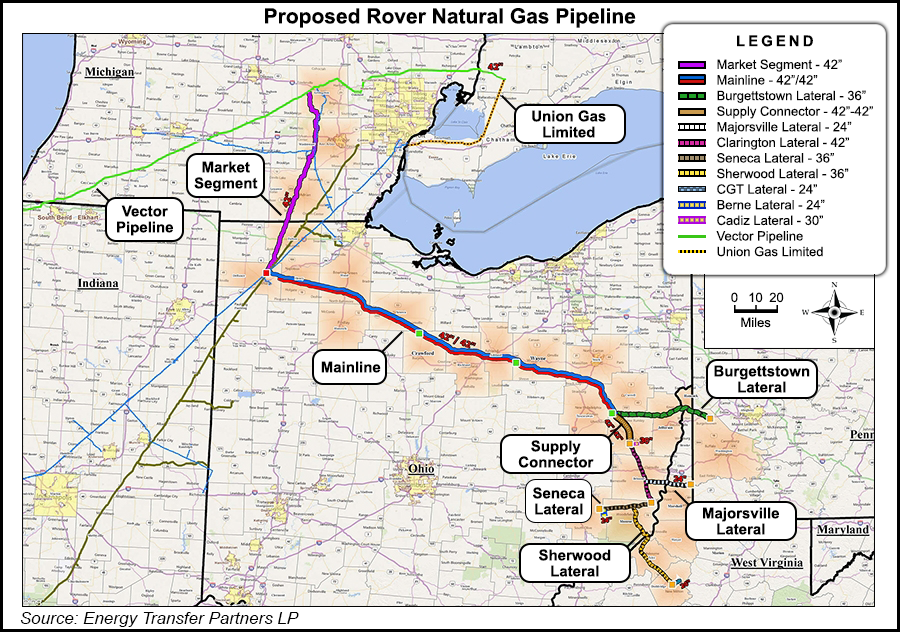Marcellus | E&P | NGI All News Access | Utica Shale
Landowners’ Law Firm Asks FERC to Delay Rover Pipeline
A law firm representing more than 200 landowners who could be impacted by the proposed Rover Pipeline has asked FERC to delay issuing a draft environmental impact statement (DEIS) for the project on the grounds that, among other things, Rover has filed insufficient details about the project’s environmental impacts.

On Tuesday, Columbus, OH-based Emens & Wolper (E&W) filed a motion for a stay over the Federal Energy Regulatory Commission issuing a DEIS for the 711-mile Rover Pipeline [CP15-93]. The firm argues that Rover, a unit of Energy Transfer Partners LP (ETP), hasn’t provided regulators with sufficient information on how drainage systems in Ohio would be managed, or the impacts to the Black Swamp in northwest Ohio.
“Much of the land Rover is proposing to traverse in Ohio contains elaborate systems to manage water,” E&W said. “While Rover pays minor lip service to the landowners’ drainage systems, Rover is unprepared to properly deal with the drainage systems it will encounter in north-central and northwest Ohio.”
The $4.2 billion Rover Pipeline would transport 3.25 Bcf/d of natural gas produced in the Marcellus and Utica shales to markets in the Midwest, Northeast, East Coast, Gulf Coast and Canada. Direct deliveries would occur in Ohio, West Virginia and Michigan, and there would also be a connection with the Dawn Hub in Ontario, Canada (see Shale Daily, June 26, 2014).
Pending FERC approval, Rover plans to begin construction during 1Q2016 and have construction up to Defiance, OH, completed by the end of 2016. It anticipates completing the entire project to Michigan and beyond by June 2017.
In June, ETP calculated that the Rover Pipeline would generate about $153 million in ad valorem taxes and $98 million in sales tax revenue in four states: Michigan, Ohio, Pennsylvania and West Virginia (see Shale Daily, June 23). ETP filed its formal application with FERC earlier this year (see Daily GPI, Feb. 23).
© 2024 Natural Gas Intelligence. All rights reserved.
ISSN © 2577-9877 | ISSN © 2158-8023 |
